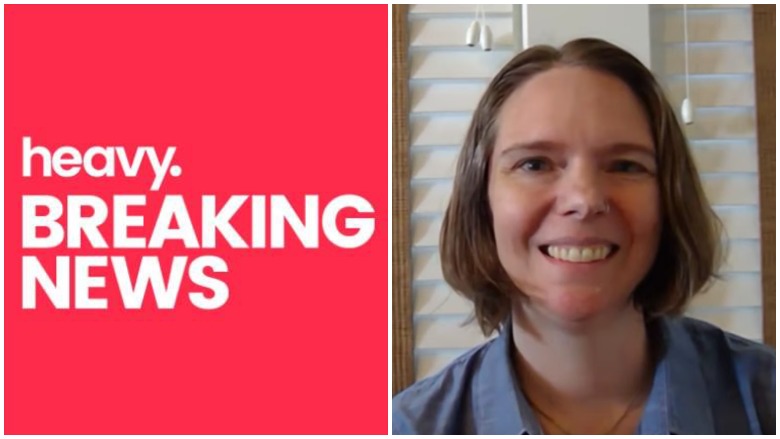
Jennifer Haller is the Seattle woman who volunteered to be the first person to test an experimental vaccine that was developed to potentially help guard against the coronavirus.
Haller received the first of two injections on March 16. The medical trial is taking place at the Kaiser Permanente Washington Health Research Institute in Seattle. Researchers recruited 45 healthy individuals to participate in phase one of the trial, which has been funded by the National Institutes of Health.
The biotechnology company Moderna created the vaccine called mRNA-1273. As researchers explained in a news release, the team first needs to determine the “safety of various doses and whether these doses produce an immune response. Phase I trials are not designed to determine whether the vaccine is effective in preventing coronavirus infection. That work comes at a later phase of the vaccine research.”
Haller told the Associated Press her two teenage children think it’s “cool” that she is part of this first trial. “We all feel so helpless. This is an amazing opportunity for me to do something.”
Here’s what you need to know.
Researchers: It Is Not Possible For Jennifer Haller to Contract the Coronavirus From the Vaccine Itself
Medical professionals developed and produced the experimental vaccine at record-breaking speed as the coronavirus spread rapidly around the world. The National Institutes of Health says scientists were able to learn from past studies of similar coronavirus strains. NIAID Director Anthony Fauci has praised the team’s work. “Finding a safe and effective vaccine to prevent infection with SARS-CoV-2 is an urgent public health priority. This Phase 1 study, launched in record speed, is an important first step toward achieving that goal.”
The NIH says the mRNA-1273 vaccine has shown promising results in animal trials. Jennifer Haller was the first human to receive a low dose of the vaccine in her upper arm. Doctors will give her a second injection 28 days after the first round. This first phase of the trial is primarily about gathering data on the drug’s safety. The team will watch closely for any potential side effects, such as a rash or a fever, and use those results to determine the dosage levels for subsequent volunteers.
There is no chance Haller could end up becoming infected from the vaccine itself. Kaiser Permanente explained that the injection “does not contain any part of the actual coronavirus and cannot cause infection.”
Haller will be monitored over the course of a year after she receives the second vaccine. But even if it is successful at protecting Haller from the virus, it will need to be tested across a much larger sample before it could be given to patients nationwide. That is why health officials have been saying that a coronavirus vaccine could take 12 to 18 months before it is ready for mass distribution.
Dr. Nelson Michael of the Walter Reed Army Institute of Research was on a panel of experts that met on March 5 to discuss the Army’s support for vaccine development. He told reporters, “The science can go very quickly but, first, do no harm, right? Obviously there are vaccines that can cause harm and provide benefits. So that mixture is something you always have to look at. And so part of the hesitation to say, oh, well we can get a vaccine quickly, is you need to make sure that it’s really safe. If you test the vaccine on 1,000, but 1 in 10,000 people is going to have something terrible that happens, until you get to those numbers you may end up doing mass vaccination campaigns with a vaccine that could cause a significant amount of problems. So you — this needs to be a constant reassessment of the risk and the benefit.” You can read the entire transcript of the discussion on the Department of Defense website here.
Jennifer Haller Says She Felt Privileged to Be Able to Volunteer For Something That Could Help Save Lives
Jennifer Haller received the first injection around 8 a.m. on March 16. She explained to GeekWire that she felt “great” after receiving the injection. “My arm isn’t sore at all, so it’s even better than a flu shot.”
She is required to take her temperature daily and record it in a diary. She was also instructed to be on the lookout for any potential side effects and to report them to the researchers immediately. There will also be weekly appointments with the doctors in the earlier stages of the trial.
Haller told MSNBC that with all of the unease and confusion surround the coronavirus outbreak, she was excited to be able to do something that could potentially benefit millions, if not billions, of people. “The chance that I could have something to do with helping save lives is huge.”
Haller said she felt privileged to be in a position to help. “I’m healthy. I have a full-time salary job, my company is flexible, and they allow me to take time off to do this. I have the support of friends and family. My real concern is for the people that have hourly jobs, that lives are going to be severely impacted coming up soon.”
Jennifer Haller Works As an Operations Manager at a Tech Company In Seattle

Jennifer Haller
Jennifer Haller lives with her husband and two teenagers in Seattle, one of the first hotspots of the coronavirus in the United States. She told KCPQ-TV that she applied to participate in the vaccine trial at Kaiser Permanente on March 3, after learning about it online. Haller said she received a phone call from the researchers two days later.
Haller works at a tech company called Attunely Inc as an operations manager. She was praised on the company’s website as a “battle-tested operations professional” with a “special passion for helping tech companies establish their unique culture and fostering workplace environments where employees feel comfortable and valued.”
According to her Facebook page, Haller is also the co-founder of a consulting firm called The Flight Team. The company works primarily with tech start-ups.
Haller has a bachelor’s degree in communications from the University of Washington. According to her LinkedIn page, she also is an animal rescuer. Haller says she fosters “special-needs dogs during their transition from high-kill shelters in CA and TX to their forever homes in Seattle.”